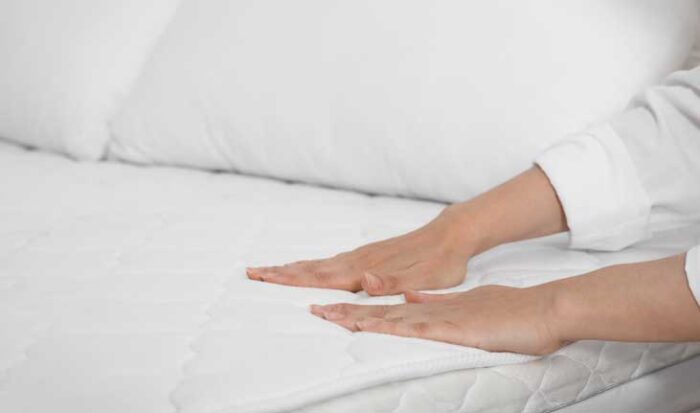The right mattress can help you get a good night’s sleep. Factors like your sleeping position, firmness preference, and budget will influence what’s the best mattress for you.
Getting the right mattress can alleviate back pain, keep you cool, and reduce snoring. Read on to learn what the qualities of a good mattress are.
Comfort
Comfort is a personal preference, and mattress shoppers need to consider their own sleep positions and body weight when selecting a mattress. Firmness is another important consideration, and it can vary depending on the sleeper’s weight and body type.
Sleepers who prefer a firm feel typically gravitate towards all-foam models that contour closely to the body and offer exceptional bounce and motion isolation. These mattresses also offer good support for the back, and are a great option for couples who share a bed. Sleepers who prefer a medium feel often choose hybrids that have an innerspring core with a foam or latex comfort layer. These mattresses combine the best of both worlds with moderate contouring and bounce.
Support
Unlike comfort, support refers to how well a dormeo matrace can withstand compression from your body weight. Mattresses with strong support won’t sink too deeply into key areas, like your torso or hips.
Foam mattresses are constructed with comfort layers that include memory foam or adaptive polyfoam and transitional and support layers made of denser foam for stability. Pros: Foam mattresses contour closely to the body for pressure relief, have good motion isolation and are more affordable than other types of mattresses. Cons: Foam can trap in heat, have an off-gassing odor and can be firm to the point of feeling uncomfortable for some people.
Stomach sleepers need a firm mattress to avoid sinking in and over-arching their spines, and back sleepers benefit from medium firmness to alleviate pain at key pressure points. Combination sleepers typically prefer medium-firm options, too. A breathable construction that promotes airflow and a cooling cover are also helpful. Look for a coil gauge and coil count when shopping.
Temperature control

The right mattress feels good and promotes healthy sleep. This can be defined by several factors, including how it feels to sleep on it and whether it provides adequate support for your body type and sleeping position. Comfort also depends on individual preferences; a firmer mattress might not feel comfortable to a certain sleeper.
While firmness is a common metric used to compare mattresses, it’s important to remember that most people need a mix of softness and support to get the best sleep. For example, a firmer mattress may contour to your body more closely and provide additional relief for pressure points than a softer one.
You should also consider the cost of a mattress and its compatibility with a frame and foundation. Some mattress types require a foundation or are only compatible with specific frames, while others can be set up directly on the floor. Many brands offer options for delivery, setup, and old mattress removal.
Durability
The lifespan of a mattress depends on a number of factors, including how much you sleep on it and how well you take care of it. Some mattresses last a few years, while others can last up to 20. It’s generally a good idea to buy a new mattress once your current one starts sagging or no longer offers adequate support, especially if you have back problems.
Choosing the right mattress for your needs will depend on a number of factors, such as how much you sleep, your sleeping position and whether or not you’re a hot sleeper. The best mattress for you will also depend on your budget and the company’s reputation.
Conclusion:
Look for a brand that prioritizes sustainability and uses natural materials. They’ll often mention this clearly on their website or in their product descriptions. It’s also important to check if a mattress can cause off-gassing, which can result in an unpleasant odor.
